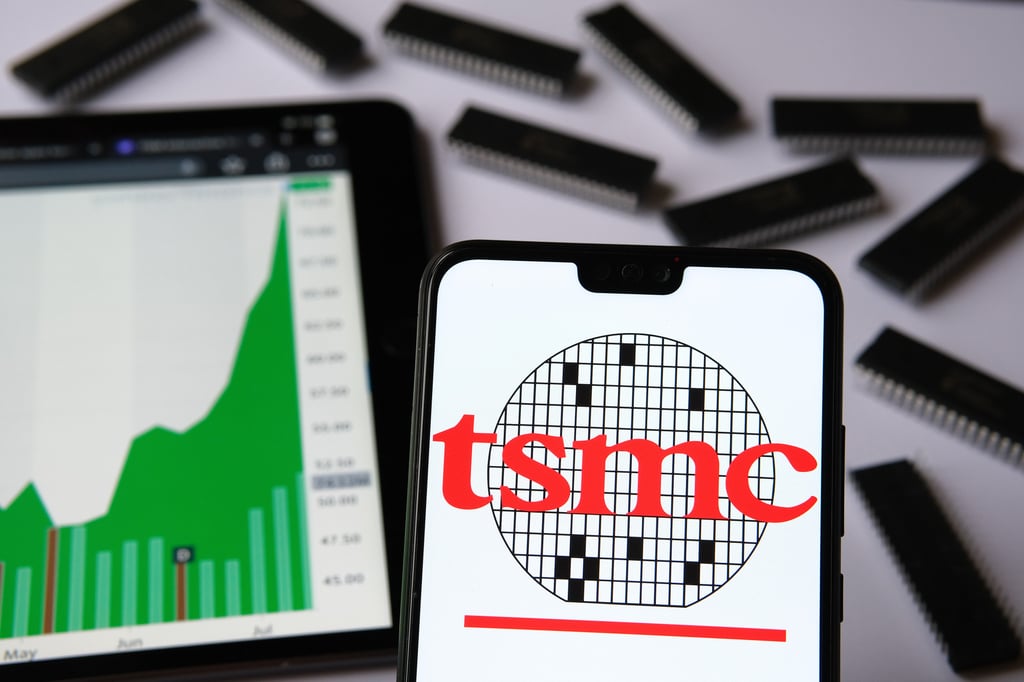Advertisement
US-China tech war: state media questions Washington’s intent on demanding chip supply data from TSMC, Samsung amid ‘targeted sanction’ concerns
- The US government’s recent request for chip supply data ‘exposes its plot’ to hold back China’s semiconductor development, according to Xinhua
- While no mainland Chinese firms were targeted by the US survey, it set off alarm bells in the country’s semiconductor industry
Reading Time:2 minutes
Why you can trust SCMP
13

China’s official state media has accused the US government of hatching a plot to obtain more information about the country’s semiconductor industry and hold back its development, following Washington’s recent request for chip supply data from companies that include Taiwan Semiconductor Manufacturing Co (TSMC) and Samsung Electronics.
“The US’ move to forcefully demand global semiconductor core data once again exposes its plot to forge a US-dominated global semiconductor supply chain, and to use chips to restrain China,” Xinhua News Agency wrote in an article published on Thursday.
The article intensifies Chinese state media’s denunciation of the US Commerce Department’s request for information, announced in September, which asked US and foreign companies in the semiconductor industry to submit supply chain data as part of efforts to help resolve bottlenecks. This US survey, which had a November 8 deadline, includes applied technology, product types, inventory data, order backlogs, delivery time and information on each product’s top three customers.
Advertisement
“The US requested data includes a lot of information about orders from Chinese companies, and the production capacity of Japanese and Korean businesses in China,” Xinhua said. “The plot by the US to get its hands on critical information of China’s semiconductor industry has been exposed. And it can’t be excluded that the US will use the core commerce data … to build a ‘China-excluded’ semiconductor supply chain.”

While no mainland Chinese companies were targeted by the US survey, Washington’s request for data set off alarm bells within the domestic semiconductor sector, which has faced mounting restrictions from US sanctions that curtail access to advanced chip technologies and equipment.
Advertisement
Despite Xinhua’s accusation, the US government did not cite China as the reason for its chip data survey even though tensions have increased between the two sides over trade issues and competition in advanced technologies.
Advertisement
Select Voice
Choose your listening speed
Get through articles 2x faster
1.25x
250 WPM
Slow
Average
Fast
1.25x